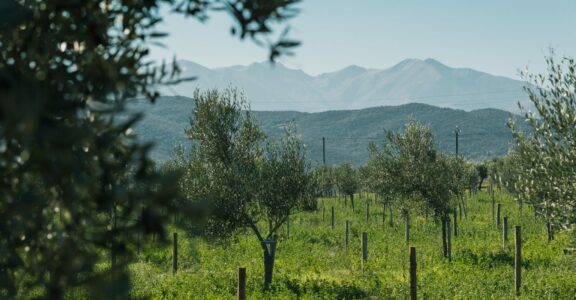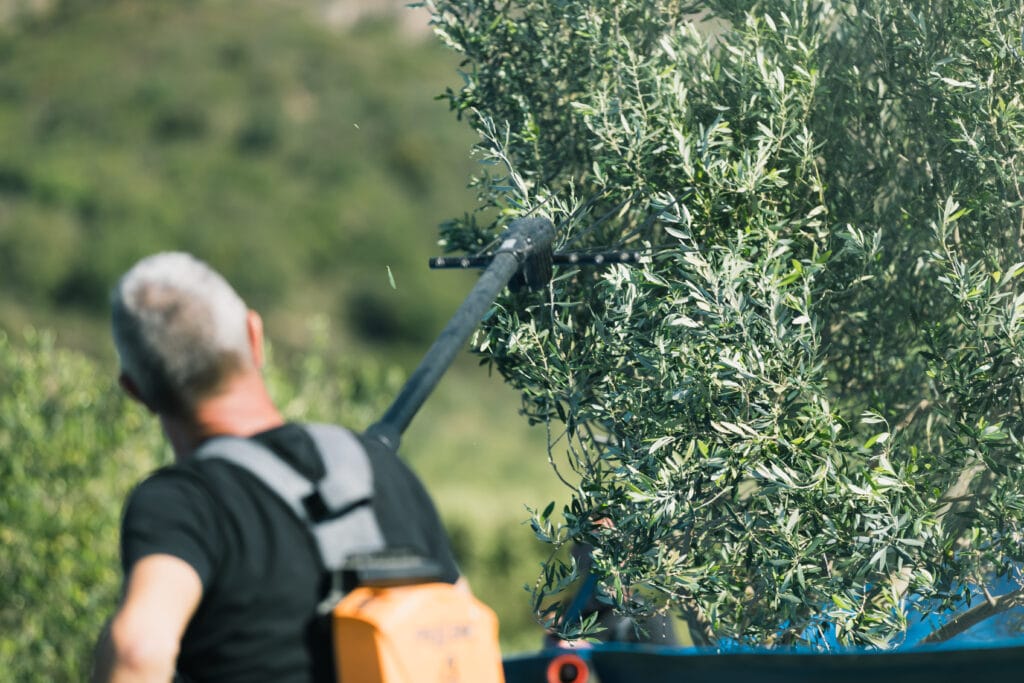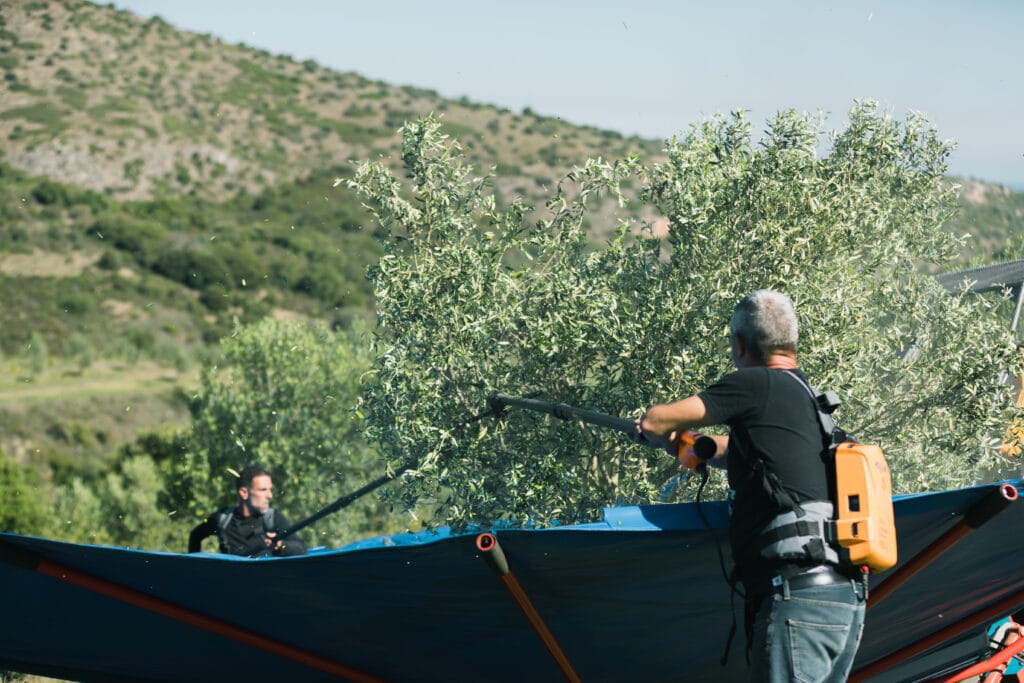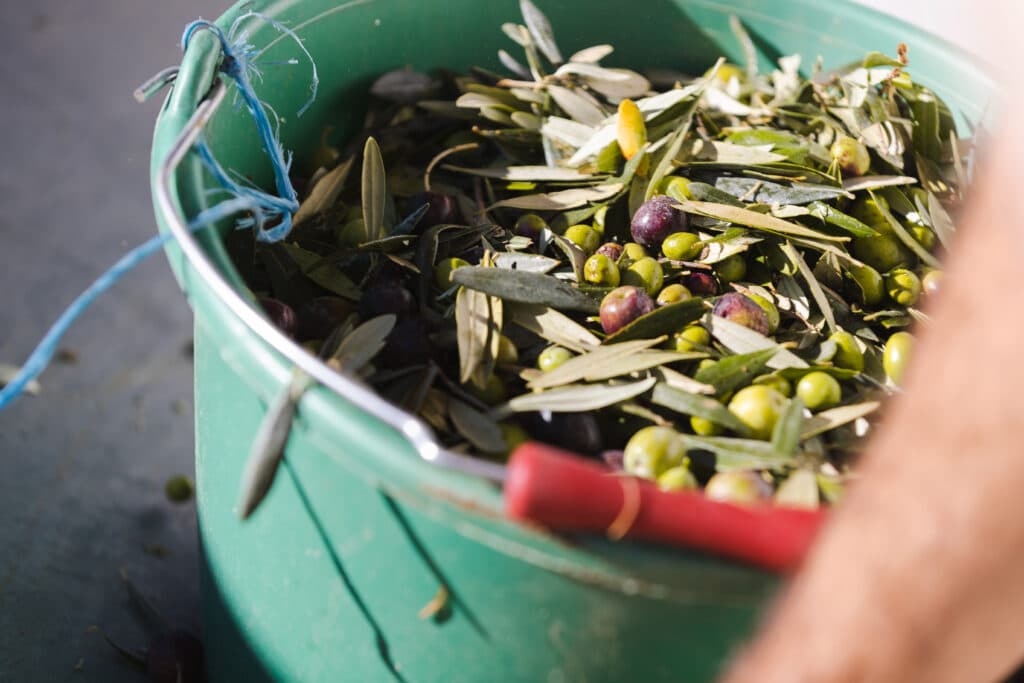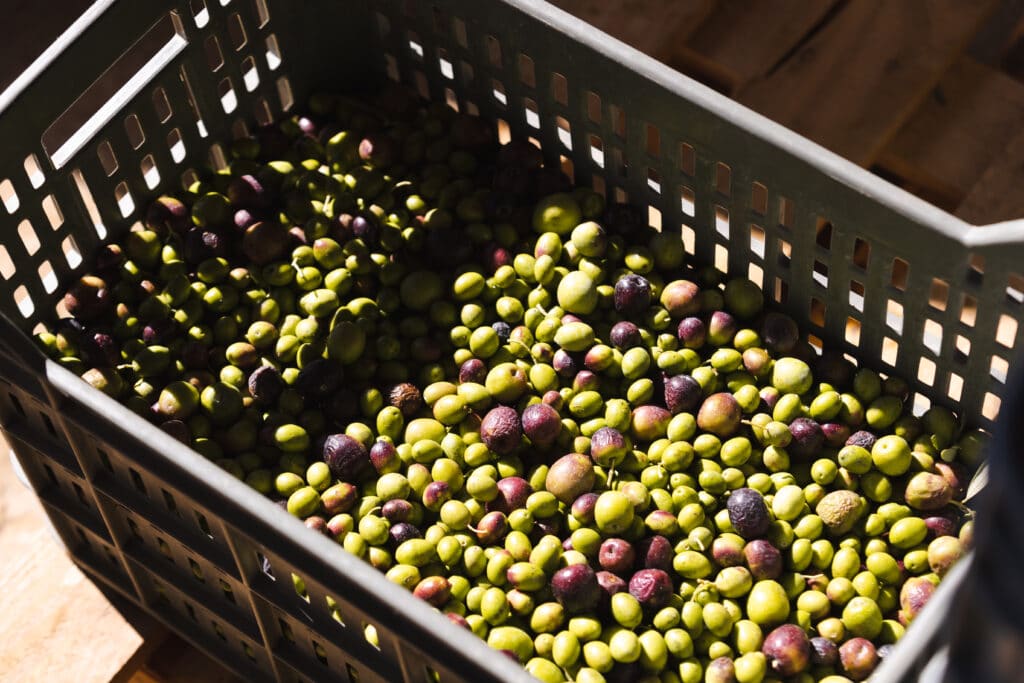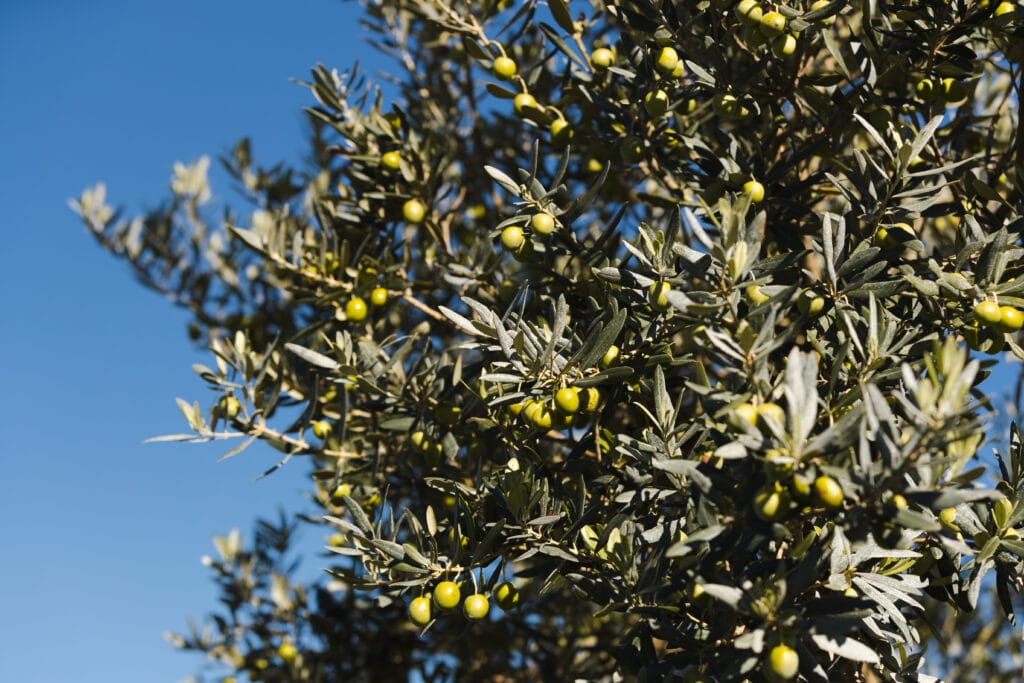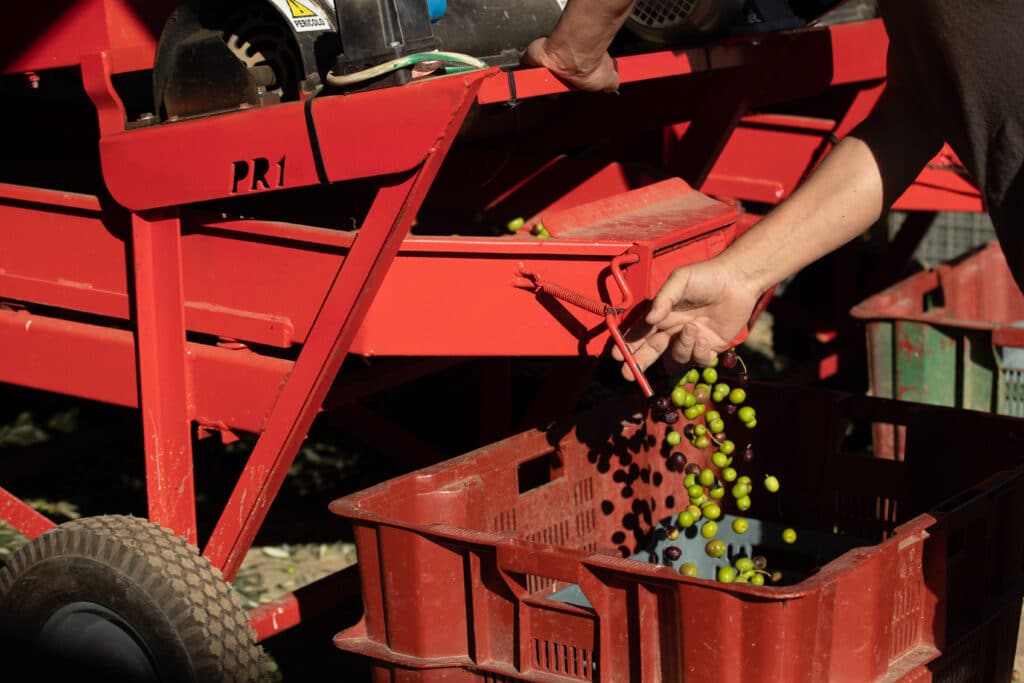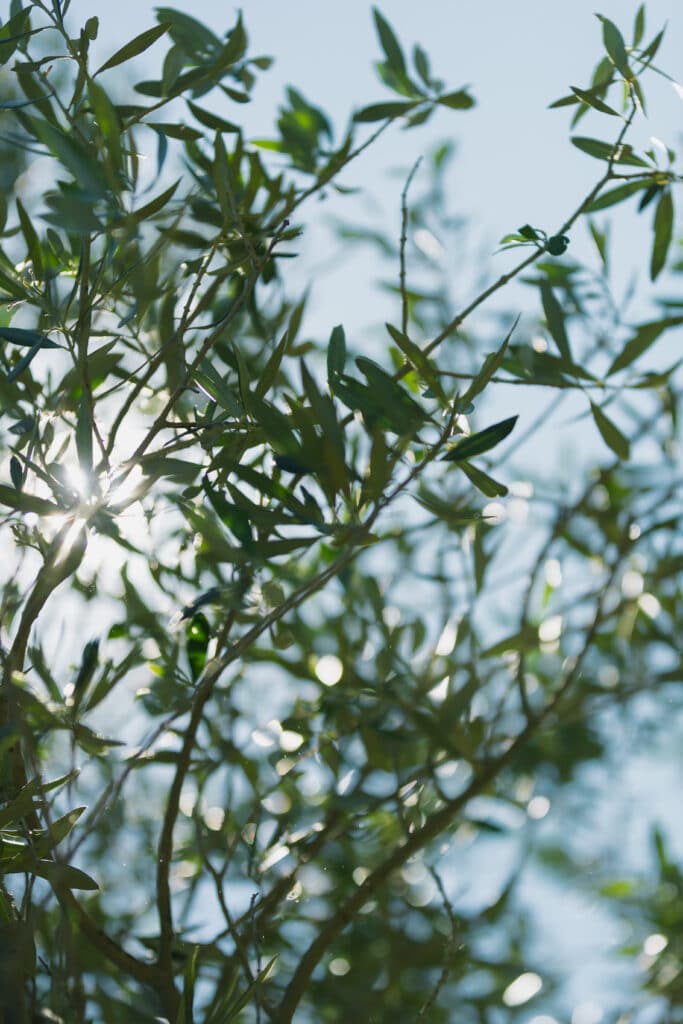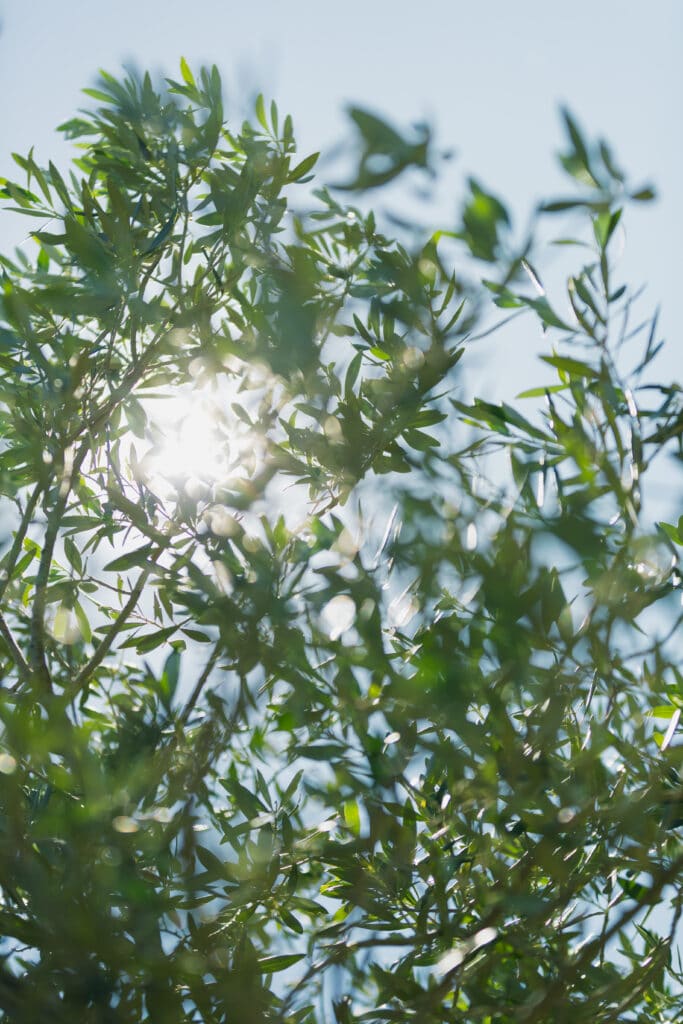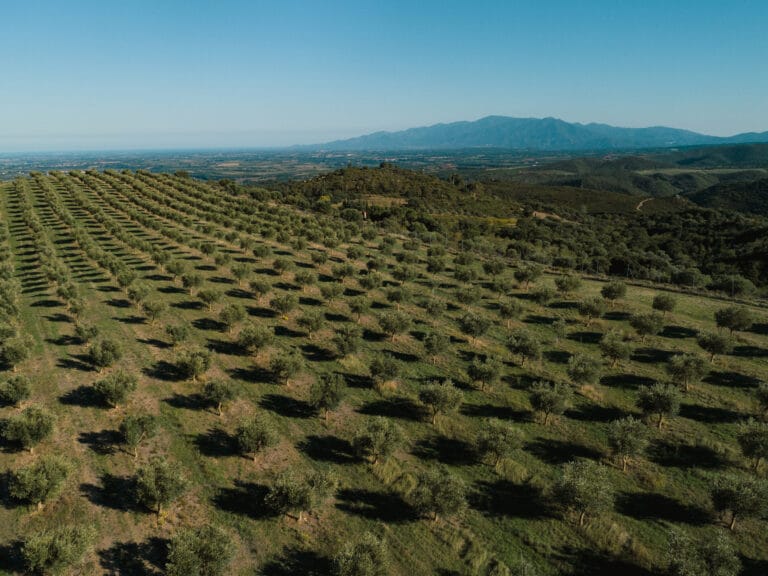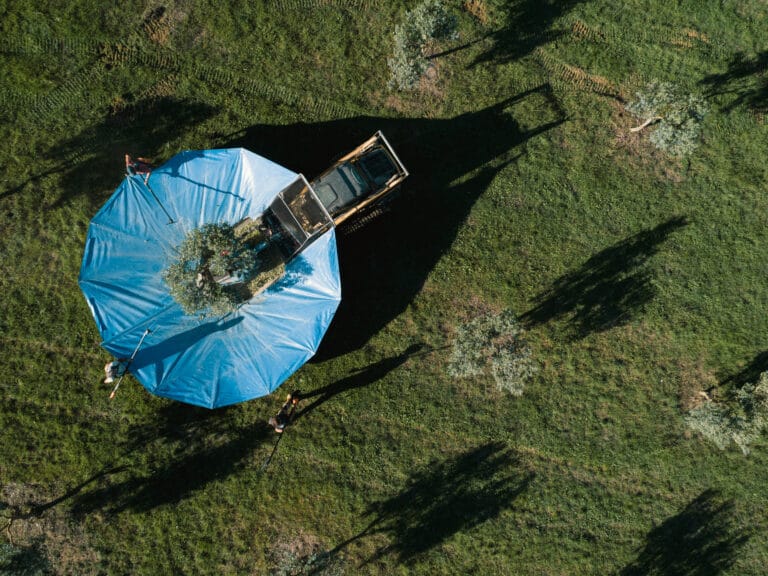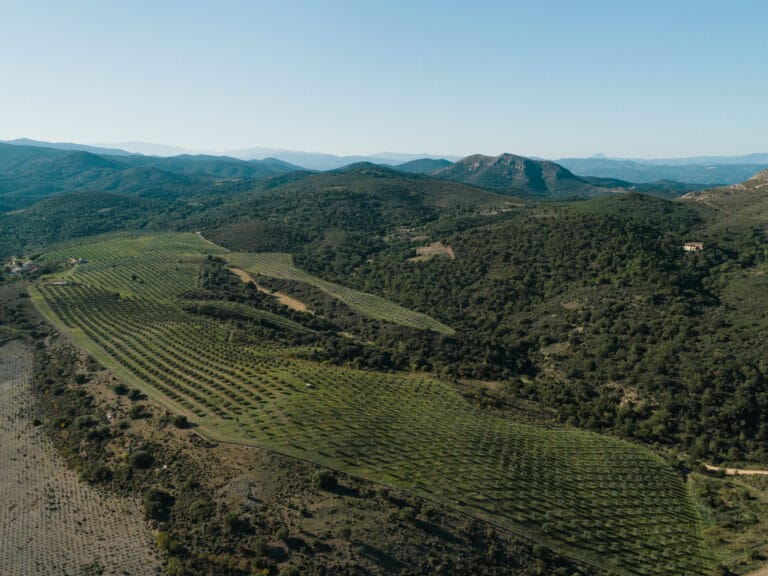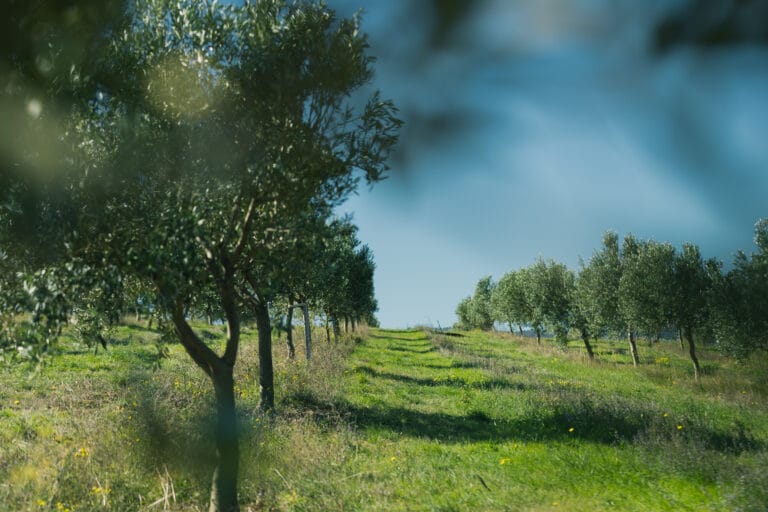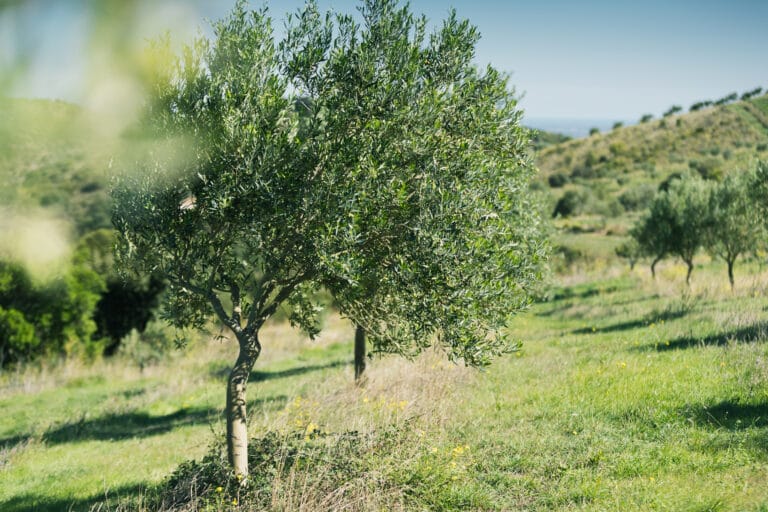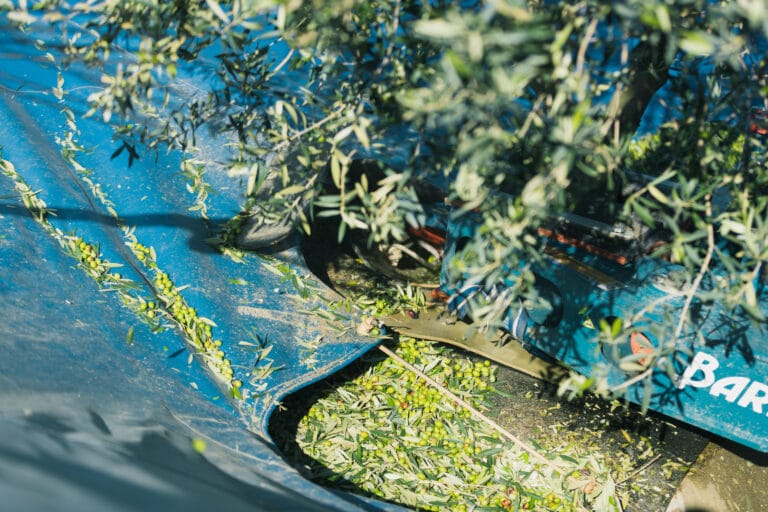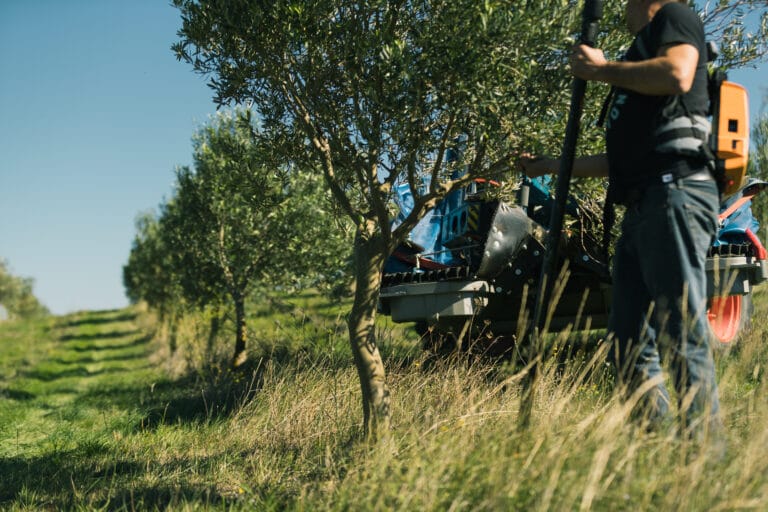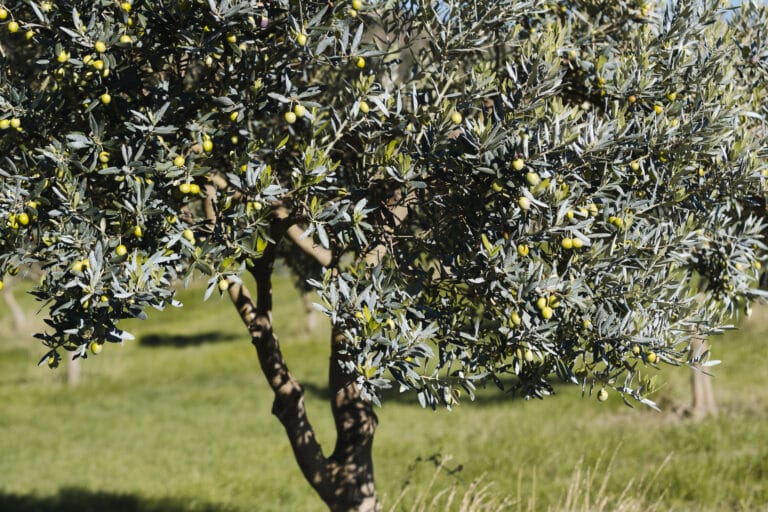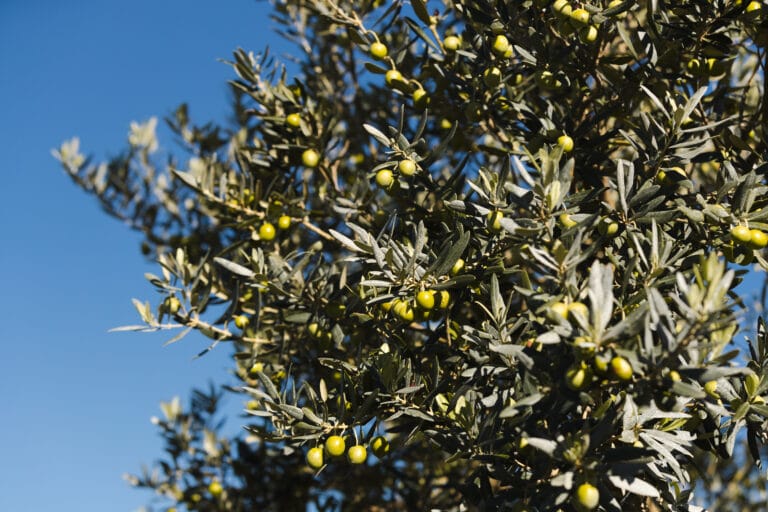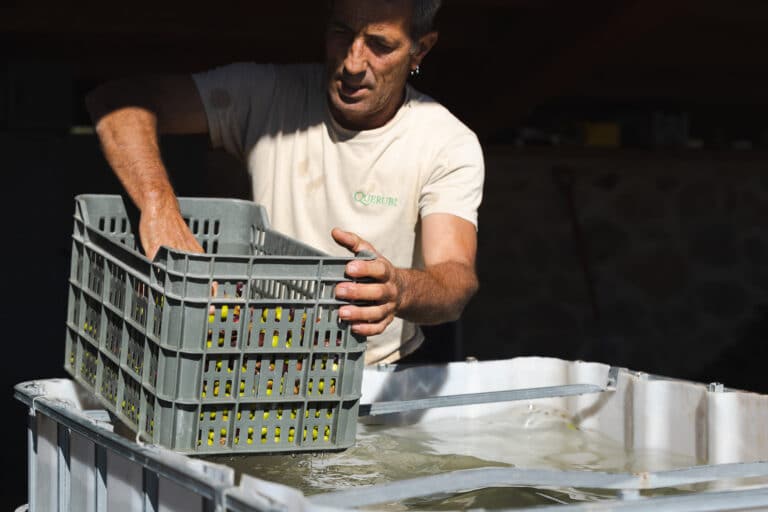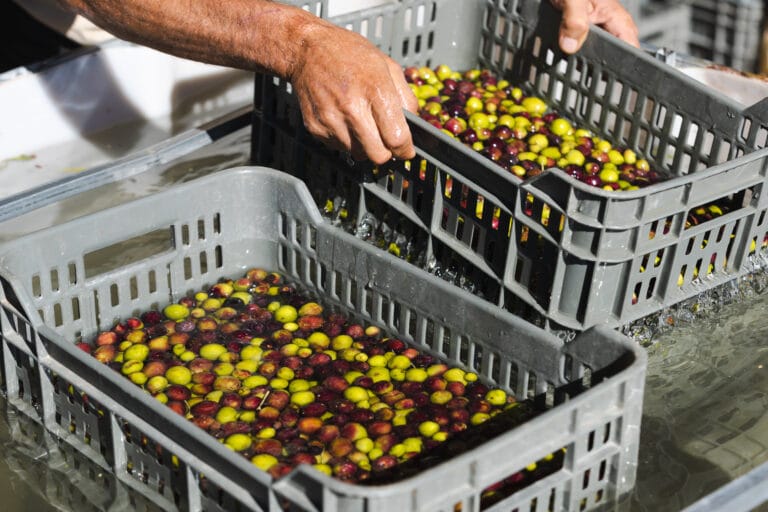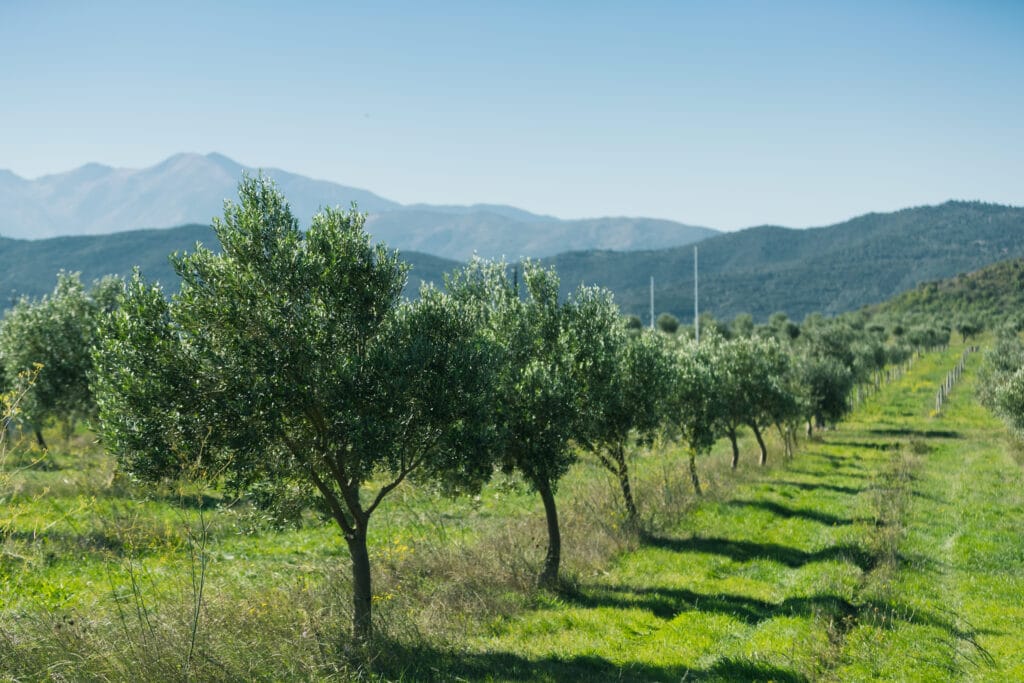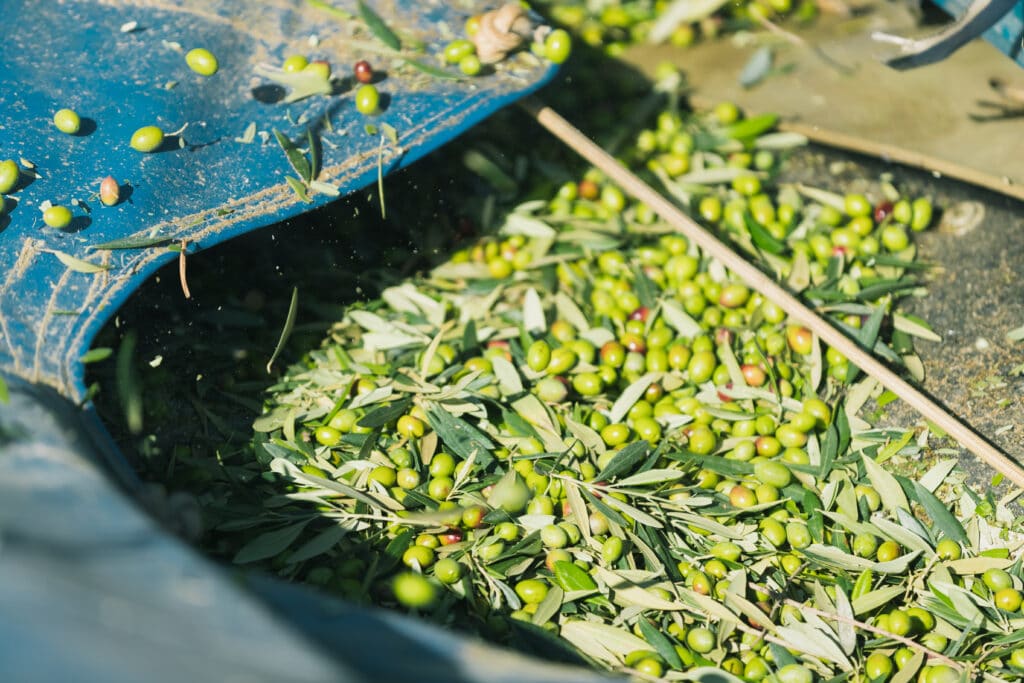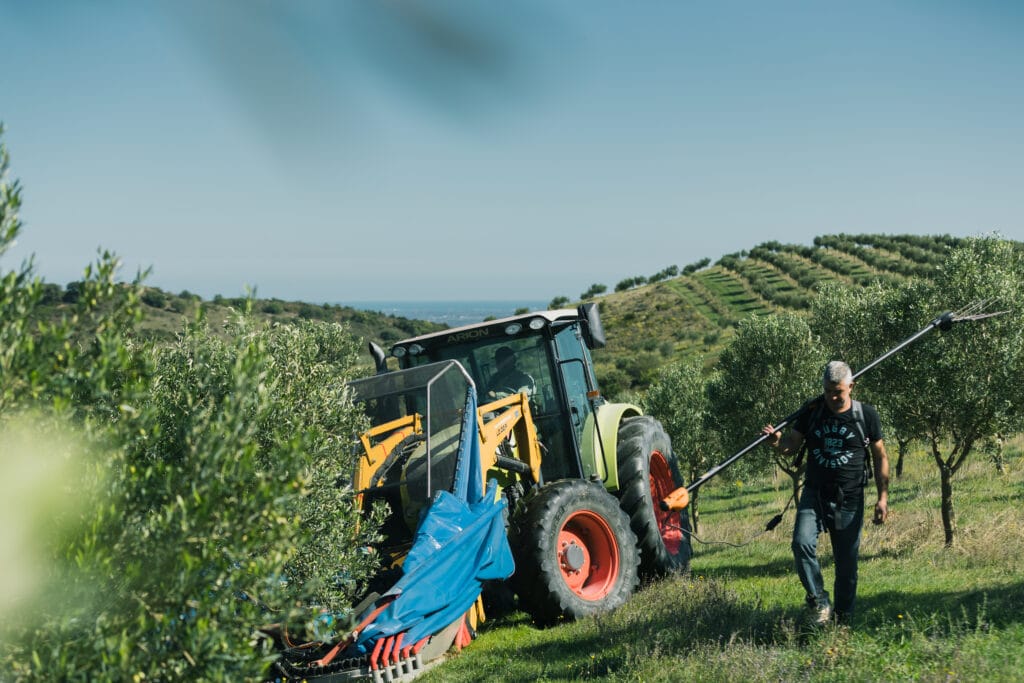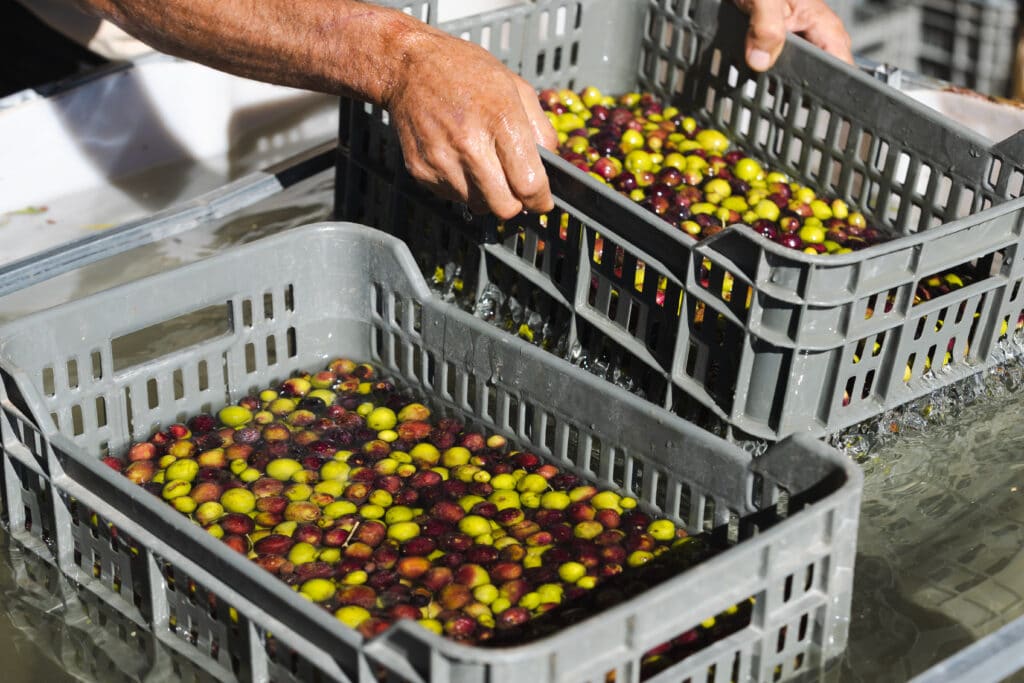Sustainable and responsible agriculture
When we found out that the majority of our soils had never been farmed before, we immediately decided to develop our farm on stringent organic principles with a “no chemicals ever” approach. We strongly believe that producing immaculate olive oil starts with developing immaculate farming practices. Our main inspirator Masanobu Fukuoka once pointedly said that :
The ultimate goal of farming is not the growing of crops, but the cultivation and perfection of human beings. It took us a while to understand this, but we think that after 10 years we have, and we passionately believe he is right.
An organic olive oil grown with passion
One estate, one passion – To create the world’s purest, unadulterated, organic extra virgin olive oil, without the use of any chemicals.
Local legend has it, that the name Querubi is derived from our 12th century Catalan Mas, which was believed to be the last resting place for Cathar pilgrims from Southern Catalunia heading North to the famous Cathar Castle “Chateau de Queribus”, Querubi meaning ‘small Queribus’. We like this story and relay it to our many visitors, and we can only hope that it has a degree of historic accuracy to it !
Lured by its beauty and twinned with the promise of mild winters, hot summers and very little rain, we acquired Domaine de Querubi in 2006. It was not until 2008 when we acquired the surrounding land, that we noted the abundance of wild, flourishing olive trees. Having led extensive entrepreneurial careers for many years, we developed a longing to live a simpler life, Querubi was the outlet we had unknowingly been searching for. And so began our journey, to transform 500 Ha of the Querubi estate into a sustainable olive farm.
Stringent Organic Farming Principles
From day one, we adopted a no chemical policy on our farm. This is important as it is quite usual for farms to start their plantations using abundant chemical substances, in order to “kick-start” and accelerate initial growth of trees until they are sufficiently productive (usually 5-7 years after planting) and then convert to organic farming principles. We however believe that nature can not, and must not, be forced and that all natural organisms must be given whatever time it takes to come to fruition. The difference between the two approaches boils down to the usual trade-off between economics (bigger and earlier harvests) versus quality (pure unforced oil). At Querubi we are solely interested in making the purest natural olive oil possible. We produce for taste, not yield.
All natural farming starts with soil. As we said earlier, the majority of our soils have never been farmed before. We have cleared, broken and prepared the soils ourselves (quite often by hand), we have planted all our trees as one year saplings in the traditional spacing format ourselves as well. We have talked to many organic farmers in different countries (America, South Africa, Spain, Chili and France) and we have developed and tested new ideas on organic farming. Some were not very good, some were very good, and after over 10 years of experimenting we now believe we have got the majority of challenges covered. Perhaps we should give the reader a short overview of the difficulties we face as organic farmers. Any olive grower will tell you that managing a high-quality olive orchard comes down to selecting the right soil and then reflecting on the need for and type of fertilization. Then there is a big choice on the way in which the trees will plant, after that it comes down to getting 3 things right :
- weed control
- proper irrigation
- defending the fruits against the devastating effects of the fruit fly
Soil health or soil quality is defined by the continued capacity of soil to function as a living ecosystem that sustains plants, animals and humans. This living ecosystem requires delicate and careful management to ensure that it is kept sustainable for future generations. To do this we must remind ourselves that soil contains living organisms, that when provide with the necessities of life (food, shelter and water) perform essential functions required to produce food and fiber. Good healthy soils are teaming with life. There are billions of bacteria, fungi and other active microbes that are the foundation of an elaborate and elegant symbiotic ecosystem. As only “living” things can have health, viewing soil as a living ecosystem reflects a fundamental shift in the way we must care for our soils. Applying products containing synthetic chemicals (chemical fertilizers, herbicides, pesticides etc.) to our soils (combined with excessive tillage and irrigation) has a devastating impact on the delicate balance of this elegant ecosystem, often killing off all useful life forms resulting in “dead soil”, i.e. soil that is no longer sustainable for future generations. It has been estimated that over the past 50 years, around half of all European agricultural soil has severely deteriorated by the appliance of synthetic chemicals.
“THE NATION THAT DESTROYS ITS SOIL, DESTROYS ITSELF“
FRANKLIN D. ROOSEVELT
C’est la raison principale pour laquelle, à Querubi, nous avons décidé de n’utiliser aucune substance chimique. Nous souhaitons simplement nous assurer que nous remettons notre exploitation à la génération This is the main reason why we at Querubi have decided not to use any chemical substances, we simply want to be sure that we hand our farm to a next generation with our soils in perfect health. But there is another driver here. We now know that there is no rational need to apply synthetic chemicals to solve agricultural problems. We also know that there are many (often cheaper) organic solutions to tackle all possible farming challenges. You just have to listen closely to the farmers that can not afford chemicals, and be open to their suggestions.
Using six by six meter spacing, we opted for a traditional low density orchard (250 trees per Ha), as opposed to high density orchards (750 trees per Ha) or even super high density orchards (up to 3000 trees per Ha). It is quite amazing to see these super high density orchards, as the soil can not provide sufficient nutrients for this density of vegetation, it needs the constant addition of massive amounts of fertilization that is only available in synthetic form. The application of this type of fertilizer damages soil health profoundly and drives the need for more fertilization. A rapidly descending spiral with a negative impact on soil health and oil quality. Hence our choice for low density traditional planting.
We are still working on the required level and type of fertilization (in our more contemplative moments we feel that the trees probably do not need fertilization, but the trees might disagree), treating trees with diseases (we prefer to replace rather than to treat) and the correct level of pruning, but we will probably never stop experimenting.
Weeds compete with the olive trees for soil nutrients and moisture, the fewer weeds around the trees, the more the trees will benefit. The simplest and probably most cost effective solution is to use synthetic weed killer, but as outlined above these substances have a massive devastating impact on soil health and can not be used in organic farming. Following a trip to South Africa we noticed wood chips being used on some vineyards and this gave us the idea to use this with our olive trees. We surround the tree trunks with a large and deep layer of medium sized wood chips to block out sunlight and thus hampering the growth of weeds. The chips not only protect soil moisture from evaporation but also deteriorate as time goes by and act as an excellent fertilizer. After 8 years of trailing various wood types, we have now perfected the fine and delicate art of chip laying and we have developed and built machinery for cost effective chip laying. Anyone interested ?? Give us a call and we are more than happy to share our experiences.
Olive trees are sturdy and thrive in relatively hot and dry environments, but they definitely do need some irrigation. We decided on an efficient subterranean irrigation system where water is supplied from our underground wells directly to the roots of the trees rather than the surface area around the trees. Installing this system involved digging over 85 km of trenches over a period of 3 years, but the overall efficiency of this approach was worth the effort. We have yet to discover the optimum level of irrigation as there are (too) many factors involved, but we persevere and hope to get it right one day.
Probably the biggest ongoing challenge is how to defend the olives against the devastating effects of the fruit fly. The fruit fly is most prevalent in high summer, pierces an olive to get its moisture and leaves an egg in the process. The egg grows into a larvae that feeds on the olive. After some time the olive shrivels, turns black/brown and falls from the tree. Not having had a non chemical answer to this problem we lost all of our 2009, 2010 and the bulk of the 2011 harvests to this fly. In 2012 we started experimenting with a chalk-water solution that we spray on the trees. Expecting green olives, the fruit fly only finds white ones and returns home without damaging the olives. We have again been experimenting for a long time with doses and spray sequences, but we think we have nailed it now.
Over the past decades we have all witnessed the havoc that freely available abundant European agricultural subsidies have created on agricultural product volumes, the end product quality and the general waste associated with subsidy driven production. We have chosen to finance the start-up of our farm ourselves and have become firm believers in the gentle step-by-step approach.
